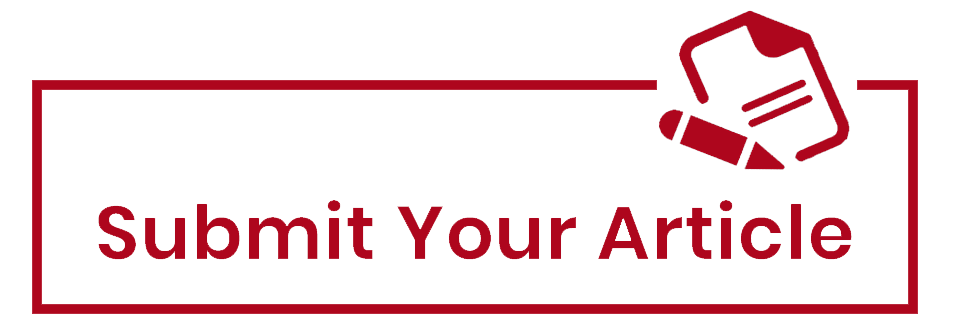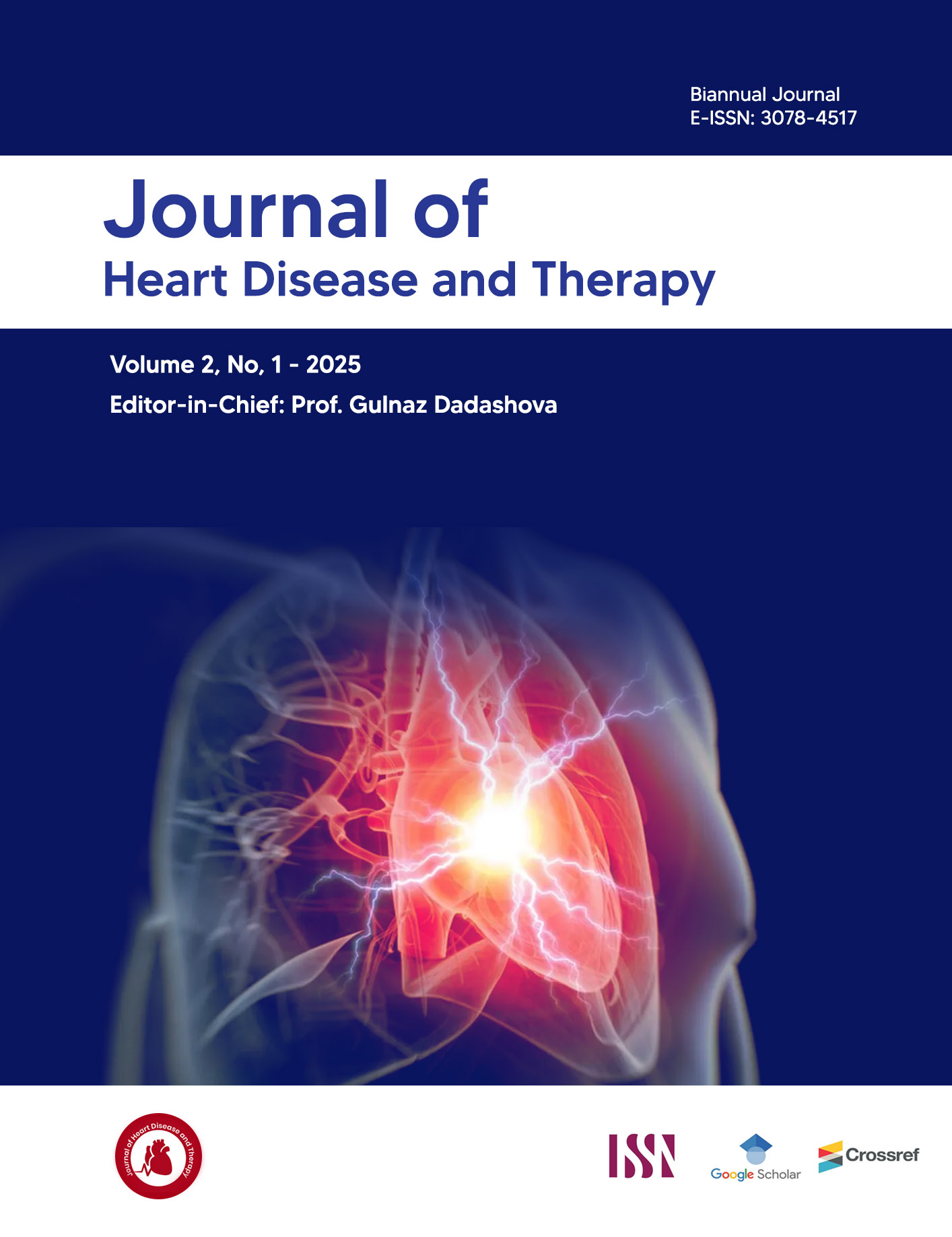Editorial Policies
Guidelines and Standards
The Journal of Heart Disease and Therapy (JHDT) adheres to the following guidelines and standards:
ICMJE: As a medical journal, JHDT follows the recommendations of the International Committee of Medical Journal Editors (ICMJE), covering all aspects of journal management, peer review processes, and handling complaints.
CONSORT: For randomized controlled trials, authors should verify their work against the CONSORT checklist and flow diagram and include these documents with their submission.
PRISMA and MOOSE: For systematic reviews and meta-analyses, authors should follow PRISMA guidelines for interventional studies and MOOSE guidelines for observational studies, including the relevant checklist and flow diagram with their submission.
ARRIVE: For in vivo animal experiments, authors should follow ARRIVE guidelines and include verification against the checklist with their submission.
STROBE and STARD: For reporting observational studies, authors should follow STROBE guidelines, and for diagnostic studies, use STARD guidelines.
CARE: For case reports, authors should follow the CARE guidelines to ensure accuracy, transparency, and usefulness.
Authors are encouraged to visit the Equator Network for other clinical reporting guidelines.
Submission to JHDT implies that all authors have read and agreed to the editorial policies, ensuring the integrity of the publication process and the research published.
Authorship
- Author Contributions
JHDT follows ICMJE guidelines for authorship credit, based on four criteria:
- Significant contributions to the conception, design, data acquisition, analysis, or interpretation.
- Drafting or critically reviewing the work for important intellectual content.
- Final approval of the version to be published.
- Agreement to be accountable for all aspects of the work, ensuring questions related to accuracy or integrity are investigated and resolved.
Authors should identify their contributions and have confidence in the integrity of their co-authors' contributions. All who meet these criteria should be listed as authors, while those who do not should be acknowledged with their permission. The CRediT system is recommended for specifying author roles.
- Acknowledgment
Contributors who do not meet all four authorship criteria should be listed in the ‘Acknowledgment’ section with their permission. Authors must obtain written approval from those named in the acknowledgment section.
- Authorship Change
Authors must ensure the author list is complete and accurate upon submission. Changes in authorship after submission require approval from all authors and a clear explanation to the editorial office. Requests must be accompanied by the JHDT Change of Authorship Form signed by all authors. No changes to the author list are allowed after manuscript acceptance, except in exceptional circumstances at the Editor-in-Chief’s discretion.
- Artificial Intelligence (AI)-Assisted Technology
Authors should disclose the use of AI-assisted technology (e.g., language models, chatbots) in their work. This should be described in the cover letter and in the Methods or Acknowledgments section of the manuscript. AI tools do not qualify for authorship. Authors must ensure their papers are free of plagiarism, including AI-generated content, and are responsible for the integrity of the content generated by these tools.
Research Ethics Policies
- Research Involving Humans
Manuscripts involving human subjects, material, or data must comply with the Declaration of Helsinki. Ethical approval from the local Institutional Review Board (IRB) or research ethics committee (REC) is required before research begins, and this must be detailed in the manuscript. Informed consent must be obtained from all participants or their guardians.
- Research Involving Animal Experiments
Manuscripts involving animal experiments must confirm adherence to legal and ethical standards for humane treatment. Ethical review committee approval and guidelines followed must be specified. Details of animal welfare, housing, feeding, and methods to minimize suffering should be included.
- Research Involving Cell Lines
Manuscripts involving cell lines must include the source, supplier, date of acquisition, and catalog number of cell lines used. Ethical approval is required for newly established human cell lines. Manuscripts must confirm testing for mycoplasma and authentication of cell lines.
- Sex and Gender in Research
Authors are encouraged to follow the Sex and Gender Equity in Research (SAGER) guidelines. Titles and abstracts should indicate the applicable sex(es). Study design should account for sex and/or gender, with data disaggregated by sex and/or gender where appropriate. If no analysis was conducted, the rationale should be provided in the Discussion.
Informed Consent Policy
JHDT follows ICMJE standards for consent, licensing, and distribution of research involving human subjects. Research must comply with the Declaration of Helsinki and receive approval from local review bodies. Authors must ensure informed consent is obtained from all participants or their guardians. Identifiable information should not be included unless necessary and with written consent. Authors must complete a patient consent form and provide it to JHDT upon request.
Citations
Research articles and non-research articles must cite appropriate and relevant literature to support claims. Authors should:
- Cite all statements relying on external sources.
- Ensure citations are accurate and genuinely support the statements made.
- Only cite sources that have been read.
- Avoid citation manipulation.
- Use self-citation appropriately and not to the exclusion of other research groups.
- Preferably cite peer-reviewed sources.
- Avoid citing advertisements or advertorial material.
Data Sharing and Data Accessibility
JHDT encourages authors to provide all data underlying their research conclusions. Datasets should be deposited in publicly available repositories with a DOI. Authors should include a data availability statement in their manuscripts.
Funding
All financial and material support for the research must be clearly identified, including article processing charges. Funding sources and grant identification must be provided through the online submission system.
Conflict of Interest
All participants in the peer-review and publication process must disclose any relationships and activities that could influence their roles.
For Authors: Disclose any potential conflicts of interest that could influence data interpretation or presentation. Full disclosure must be made in the cover letter and manuscript.
For Reviewers: Disclose any conflicts that could bias their opinions and recuse themselves if necessary.
For Editors: Editorial staff or editors should not process their own submissions. Submissions from editors will be handled by alternative board members without conflicts of interest.
Editorial Responsibilities
Editorial Board Members and Guest Editors must adhere to JHDT's editorial policies and avoid using the journal for self-promotion or unethical practices. They must provide unbiased consideration of all manuscripts and maintain confidentiality. If a published paper is found to be erroneous, they should facilitate the publication of a correction or retraction.
Editorial Independence
Editorial decisions must be based solely on scientific merit, free from external influence or pressure. JHDT's editorial policy aligns with the principles of editorial independence as outlined by the World Association of Medical Editors (WAME).
Erratum, Editorial Expressions of Concern, Corrections, and Retractions
JHDT follows ICMJE and COPE guidelines to ensure the integrity of academic records. Corrections, expressions of concern, or retractions will be issued as needed to address significant errors or misconduct.
Erratum: Addresses errors introduced by the publisher.
Editorial Expressions of Concern: Issued when there are substantial doubts about the integrity of an article.
Corrections: Address errors affecting interpretation but not integrity.
Retraction: Issued for significant errors or misconduct.
Appeals and Complaints
JHDT follows COPE guidelines for handling appeals and complaints. Authors who believe an error was made in rejecting their paper may submit an appeal. The appeal should outline the reasons for disagreement and provide detailed responses to the rejection comments. The Editorial Advisory Panel and external experts will review the appeal. If authors can revise the manuscript to address all concerns, they should resubmit the revised article with a comprehensive response to the previous reviews.
Anti-Plagiarism Policy for Journal of Heart Disease and Therapy
- Objective
The objective of this Anti-Plagiarism Policy is to ensure the integrity and originality of the research published in the Journal of Heart Disease and Therapy. This policy outlines the standards and procedures to prevent and address plagiarism, promoting ethical writing and research practices.
- Definition of Plagiarism
Plagiarism is the unethical practice of using others' ideas, processes, results, or words without proper acknowledgment. It includes, but is not limited to:
- Direct Plagiarism: Copying text word-for-word from another source without citation.
- Self-Plagiarism: Reusing significant parts of one’s own published work without citing the original publication.
- Paraphrasing Plagiarism: Rephrasing another’s ideas or text without proper citation.
- Mosaic Plagiarism: Blending copied text from multiple sources without citation.
- Inadequate Citation: Failing to give proper credit for ideas, findings, or text that are not originally yours.
- Submission Guidelines
Authors must ensure that all submitted manuscripts are their original work and appropriately cite all sources. Authors should use plagiarism detection software to check their work before submission.
- Plagiarism Detection
The Journal of Heart Disease and Therapy employs plagiarism detection tools to screen all submitted manuscripts. The editorial team reviews similarity reports to identify potential plagiarism.
- Addressing Plagiarism
When plagiarism is detected, the editorial team will take the following actions based on the severity of the plagiarism:
- Minor Plagiarism: If minor plagiarism is detected (e.g., a few sentences or phrases), the author will be required to revise the manuscript to include proper citations. An explanatory note may be added.
- Moderate Plagiarism: If moderate plagiarism is detected (e.g., several paragraphs), the manuscript will be rejected, and the author will be asked to rewrite and resubmit with correct citations.
- Severe Plagiarism: If severe plagiarism is detected (e.g., large sections of text), the manuscript will be rejected outright, and the author(s) will be prohibited from submitting to the journal for a specified period. Institutions of the authors may be informed.
- Post-Publication Plagiarism
If plagiarism is discovered in a published article:
- A retraction statement will be issued, and the online version of the article will be removed.
- A correction or retraction notice will be published in the journal.
- Authors involved may be banned from future submissions for a defined period.
- Appeal Process
Authors who believe their manuscript was wrongly accused of plagiarism may appeal the decision by submitting a detailed explanation and supporting evidence. The editorial board will review and make a final decision on the appeal.
- Author Responsibilities
Authors are responsible for ensuring the originality of their work and for citing all sources accurately. Authors must familiarize themselves with and adhere to this policy, taking all necessary precautions to avoid plagiarism.
- Editorial Responsibilities
The editorial board is responsible for enforcing this policy. They will ensure all manuscripts undergo thorough plagiarism checks and handle detected plagiarism cases according to this policy.
- Policy Updates
The Journal of Heart Disease and Therapy reserves the right to update this policy as needed to address new challenges and ensure the continued integrity of its publications. All updates will be communicated to authors and posted on the journal’s website.








